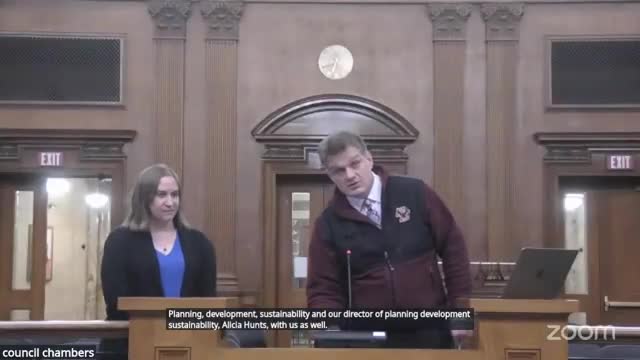School committee approves $25.8 million bond for McGlynn, Andrews HVAC replacement
Get AI-powered insights, summaries, and transcripts
Subscribe
Summary
The Medford School Committee voted to approve a $25,775,000 bond request to replace HVAC systems at McGlynn and Andrews schools, approving construction budgets, contingencies and ADA work while seeking variances for higher-cost accessibility items and considering future solar options.
The Medford School Committee voted to approve a $25,775,000 bond request to replace and upgrade heating, ventilation and air‑conditioning systems at McGlynn and Andrews schools, a project administrators said will reduce energy use and modernize aging equipment.
The committee approved the bond after staff outlined construction and other costs, contingency planning and timelines. Assistant Superintendent Peter J. Cushing said the district has requested $5 million for a pre‑purchase of long‑lead equipment and that the work aims to have new systems on site and installed before students return in the fall. “This project … will also serve as a significant energy reduction for the city,” Cushing said.
Why it matters: Administrators said the project replaces equipment nearing 25 years old, includes mandatory accessibility work triggered by the scope of construction and is expected to carry an operating budget impact in future years. Cushing said the district estimates about $1.8 million in annual debt service for principal and interest by fiscal 2027 tied to the bond repayment.
Details: Staff presented a construction budget and related expenses: total construction costs were listed at about $19,279,000, with a broader construction budget near $22,945,533; an owner’s construction contingency of about $687,000; designer and construction‑phase design costs of roughly $1,300,000; and owner’s project management fees (JLL) of around $484,000. Other project costs include commissioning (about $500,000) and IT room HVAC replacements for the two schools that are part of the package.
On accessibility, staff said approximately $619,000 in ADA upgrades are included in the project scope as currently proposed; an additional roughly $2.3 million in accessibility work was described as too costly for this phase and staff said they intend to apply for state variances for those items. “We fully expect that we will get them,” a district representative said regarding the variance requests.
Incentives and contingencies: Project managers said the district expects to pursue Mass Save incentives estimated at about $2.2 million; those are structured as reimbursements, meaning the district must pay costs up front and receive incentive payments later. Staff also described more than $2 million in contingency funds to cover potential tariff impacts and overtime/second‑shift work if schedule pressures require accelerated installation.
Solar option: Administrators discussed, but did not include, rooftop solar as part of the bond package. Brenda Pike and planning staff said solar could be added later as an alternate if project costs come in under budget. “The best value in terms of getting the benefit from the solar is if you own it yourself,” a planning official said, while acknowledging a power‑purchase agreement or lease is another option used elsewhere.
Budget impact: Cushing warned the committee that debt service on the bond will affect future budgets: “When we hit fiscal year ’27, this is a $1,800,000 hit on our budget for return of principal and interest,” he said, noting the district and city budget will need to accommodate that expense.
Vote and next steps: The committee approved the bond request by recorded roll call as recorded in the meeting (affirmative votes: 7; absent: 1). Staff will proceed with procurement, permitting and variance applications as outlined.
